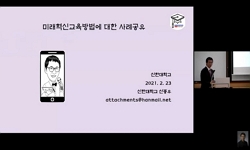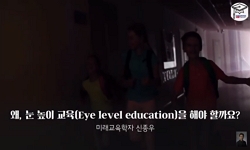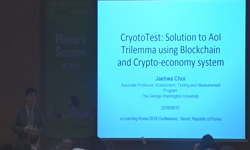Western missionaries in China constantly asserted the reform in the late Ch'ing China. They especially emphasized the reform in the state examination system and the education in various ways, even suggesting reform programs. Not only they directly cla...
http://chineseinput.net/에서 pinyin(병음)방식으로 중국어를 변환할 수 있습니다.
변환된 중국어를 복사하여 사용하시면 됩니다.
- 中文 을 입력하시려면 zhongwen을 입력하시고 space를누르시면됩니다.
- 北京 을 입력하시려면 beijing을 입력하시고 space를 누르시면 됩니다.

청말(淸末) 중국(中國) 주재(駐在) 서양(西洋) 선교사(宣敎師)의 과거(科擧) 및 교육(敎育) 개혁론(改革論) = Western Missionaries" Reform Plans in the Sate Examination System and Education in the Late Ch"ing China
한글로보기부가정보
다국어 초록 (Multilingual Abstract)
Western missionaries in China constantly asserted the reform in the late Ch'ing China. They especially emphasized the reform in the state examination system and the education in various ways, even suggesting reform programs. Not only they directly claimed the reform, but indirectly created a favourable atmosphere for it, introducing various books on the Western educational institutions with a little exaggeration. They did not persisted in the abolition of the state examination system until the Chinese-French war, but preferred a partial reform of it, maintaining the improvement in the method of the examination and the introduction of the Western disciplines in education. This shows us that they are confused in their recognition of the examination system. As Calvin Mateer shows, though the state examination system had a huge problem, the social position and influence, and the positive side of it was not ignorable. Instead, a proposal to select government officials through the school system was suggested. This was an effective proposal to promote the educational system without abolishing the state examination system and at the same time to make the reform of the state examination system possible. It was an initiative form of the Examination-School Integration theory. The establishment of the three-grade(or two grade) school system, the performance of the national education and the financial preparation for the educational expense through donation were suggested for the performance of the reform. It was Timothy Richard, the secretary of the Society for the Diffusion of Christian and General Knowledge(廣學會), that proposed the most effective reform plan in the age from Sino-French war to Sino-Japanese war. In 1889 he presented his reform plan to Lee Hongzhang, insisting on the establishment of the three-grade school system, the establishment of an official educational department, the financial preparation for the education, the addition of the western disciplines to the state examination and etc., making a comprehensive allowance for school, newspaper and library all together. In April 1894, when he insisted that the affair of the educational department(廣學部) should be discussed with Robert Hart, the inspector general of the Chinese maritime custom house, he exposed his imperialistic nature. Thus even Timothy Richard, the most radical educational reformist, did not persisted on the abolition of the state examination system. The abolition of the state examination had never been discussed up to this stage. After Sino-Japanese war, they proposed a new opinion that the university supposed to be established in the capital should have the two functions as that of a national university and as that of the governmental educational department, which was a new strategy aiming at two effects, setting up a school system and establishing an educational department. Jing-shih-tahsieh-t'ang, the Imperial University of Peijing established after 1897 Reform Movement really had functions like this. The imperialistic invasion which began to be shown in the Timothy Richard's reform plans became conspicuous after Sino-Japanese war. Timothy's imperialistic tendency is well manifested in his "New Policy" published in Oct. of 1895, which contained the perspective to make China a protectorate. Young Allen also had the same attitude. After Sino-Japanese war, the missionaries began to really present their reform programs to the Chinese high officials or to the Board of Foreign Affair(總理衙門), often taking advantage of their personal relationship, which was a new feature of this time in China. Missionaries also introduced the modern educational ideals of the West, the ideal of the national education enabling every class of people to be commonly educated without any segregation, and an obligatory educational system to China, which enabled the Chinese intellectuals to recognize more concretely the modern educational ideals and the educational systems of the West. Though it is certain that the reform of the state examination system and the education from the late 19<sup>th</sup> century to 20<sup>th</sup> century was performed by the Chinese intellectuals’ active leadership, it was sure to be affected by the missionaries’ reform plans which had been created responding to change in the Chinese inner and outer situations. Especially the reform plans proposed by the missionaries during the period of reform movement after Sino-Japanese war must have provided the Chinese reformers with inspiration and vision. The reform plans, whether suggested by 1897 reformers or promoted by the government which had frustrated the former reformers, were generally similar with the missionaries’. My fundamental concern about this issue is not the mutual affects between them, but why the missionaries were so indulged in the reform of the state examination state and the educational reform in China. This will provide a good example which will be helpful for the understanding what the missionary’s motives to make them contend the performance of reforms in their different regions(mainly in colony) in the age of imperialism. The missionaries' imperialistic ideals exposed explicitly after the Sino-Japanese war have been a good ground for the blame that they represented the imperialistic policy of their own state. But it should also be reconsidered that they were mostly interested in the educational reform and the reform of the state examination system, not in either politics or economy. Perhaps they might be too much eager for the enrichment of China, or intend to produce a favourable atmosphere for the expansion of European civilization and for the Christian mission, by the fundamental change in the Confucian system through the reform. However, whatever it may be, their devaluation on the Chinese civilization is sure to be the effect of the orientalism. In 1897 Timothy Richard suggested to the British minister of foreign affair that the Britain agree to the raise of customs rate by 1 %, and invest the surplus custom revenue cause by the raise of customs rate to the Chinese education. He added that this policy would make the future Chinese leaders study in England, which would be again advantageous for the trade. This way of thought indicates many things. America allowed a part of the recompense for the Boxers’ Rebellion to be invested for the Chinese students' educational expense studying in America. This policy is similar with Timothy's proposal. The relationship between them is to be investigated more.
동일학술지(권/호) 다른 논문
-
돈황(敦煌) 막고굴(莫高窟) 초기의 참선 수행 -막고굴 제285굴을 중심으로 한 고찰-
- 중국사학회
- 저우종치앙
- 2018
- KCI등재
-
- 중국사학회
- 후걸
- 2018
- KCI등재
-
원대(元代) 운남(雲南) 서남(西南)의 변경지역(邊境地域)과 주변국간(周邊國間)의 관계(關係)
- 중국사학회
- 배숙희 ( Bae Sook Hee )
- 2018
- KCI등재
-
명(明) 형개(邢?) 『경략어왜주의(經略御倭奏議)』의 정유재란(丁酉再亂) 사료(史料) 고찰(考察)
- 중국사학회
- 박현규 ( Park Hyun Kyu )
- 2018
- KCI등재
분석정보
연관 공개강의(KOCW)
-

호주의 교육개혁 동향과 Digital education revolution
한국교육학술정보원 양승실 -

미래혁신교육방법에 대한 신종우교수의 수업사례 공유
신한대학교 신종우 -

눈 높이 교육(Eye level education)에 대한 당신의 생각은
신한대학교 신종우 -

왜, 눈 높이 교육(Eye level education)을 해야 할까요
신한대학교 신종우 -

4차 산업혁명 시대, 새로운 테크놀로지의 교육적 활용
한국교육학술정보원 최재화(조지 워싱턴 대학), Aaron Hor(Midwestern Higher Education Compact), Sung Hong(유데미)





 KCI
KCI KISS
KISS


